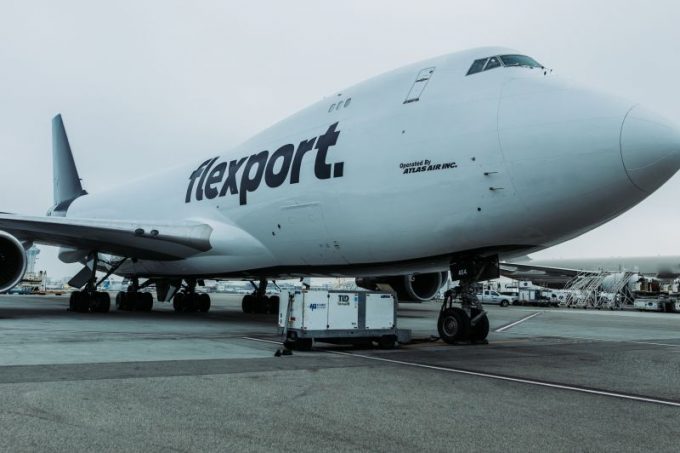Tariffs and de minimis set air freight rates on a volatile course
Airfreight rates are climbing as shippers rush to move goods before a potential trade war ...

Flexport expects to see its first flight today of a newly liveried aircraft, the second Atlas-operated plane to sport Flexport’s logo.
The 747-400F has been undergoing a heavy check in Taiwan for the past two months, during which time it also popped into the paint shop for a new look.
Flexport is not planning to paint its third aircraft.
“It just gives us a little bit more swap flexibility,” explained Neel Jones Shah, outgoing board advisor to Flexport.
“We swap our livery airplane out ...
Asia-USEC shippers to lose 42% capacity in a surge of blanked sailings
USTR fees will lead to 'complete destabilisation' of container shipping alliances
New USTR port fees threaten shipping and global supply chains, says Cosco
Outlook for container shipping 'more uncertain now than at the onset of Covid'
Transpac container service closures mount
DHL Express suspends non-de minimis B2C parcels to US consumers
Zim ordered to pay Samsung $3.7m for 'wrongful' D&D charges
Flexport lawsuit an 'undifferentiated mass of gibberish', claims Freightmate

Comment on this article